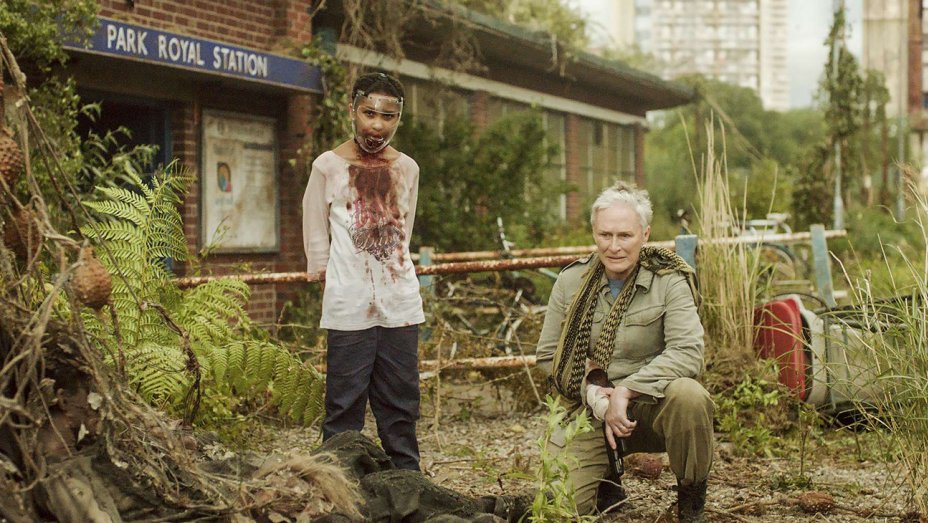 (4 / 5)
(4 / 5)
The Young Adult movie has been infected by the zombie genre. The result revitalizes them both.
Based on the novel by M.R. Carey, The Girl With All The Gifts follows Melanie (newcomer Sennia Nanua), a gifted girl who also happens to be possessed with a ravening hunger for flesh. One of a school of test subjects for the intellectually detached but not inhuman Dr. Caldwell (Glenn Close), watched over by the gruff, occasionally sadistic Sgt. Parks (Paddy Considine channeling Christopher Eccleston), her only ally is the loving, even saintly, Miss Justineau (Gemma Arterton).
When the facility falls to the “Hungries” (see: zombies), the four finds themselves on the road, accompanied by the inexperienced Pvt. Gallagher (Fisayo Akinade) and forced to rely on Melanie’s abilities. She alone won’t set off the chittering, moldy-faced denizens of post-apocalyptic London, whose streets and walkways are now crowded with the otherwise inactive, surprisingly well-spaced, undead.
While the setting is straight out of 28 Days Later — albeit substituting the BT Tower for London Bridge — the adults’ growing affection for the perpetually cheery Melanie is more akin to the video-game The Last Of Us, whose long-mooted film adaptation seems entirely unnecessary in the light of this. Treated first as a monster and forced to wear a Lecter mask, Melanie’s naivety and optimism are embodied perfectly by Nanua; who also manages to convey a quietly developing awareness of the role she is to play in the fate of all mankind.
Cristobal Tapia de Veer’s haunting electro score, which manages to be at once choral and almost tribal, evokes this sense of wonder without undermining the horror of the film’s milieu. The supporting characters are archetypal, if compellingly rendered by a talented cast, and their journey almost storybook in its familiarity — an effect lent to by Simon Dennis’ hard, high contrast cinematography — but the film uses these tropes, or subversion thereof, to surprise.
The Girl With All The Gifts may invite plenty of comparison — including, unlikely as it sounds, to Hook, in which, let’s not forget, Glenn Close had a cameo — but when that comparison is, ultimately, with The Road, whose blend of pessimism and hope the film recalls, that’s still pretty remarkable.
